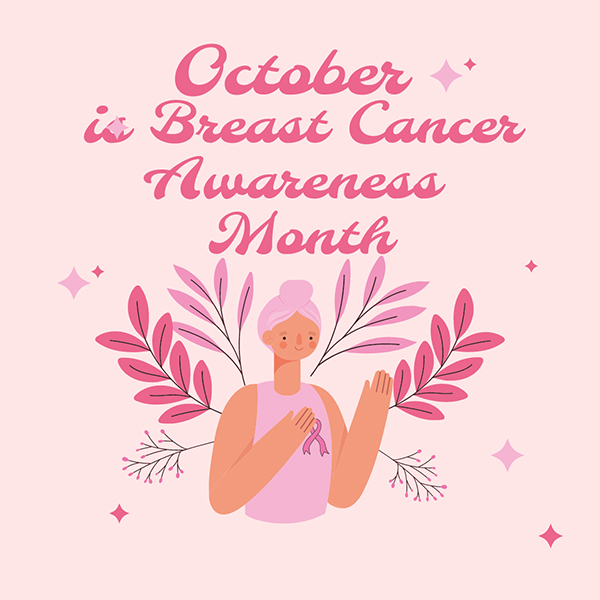Breast Cancer Awareness Month isn’t just a reminder—it’s a call to action.
It’s about early detection saving lives, communities rallying together, and self-care becoming non-negotiable.
We can’t underscore enough the need for awareness, prevention, and integrative approaches to breast cancer care.
That’s where the Naturopathic Medicine approach comes in. Naturopathic medicine offers a holistic approach, emphasizing lifestyle modifications, and offering a comprehensive look at your overall health, including hormone testing.
Hormone health is an important part of a woman’s wellness, and along with managing stress, eating a healthy plant-focused diet, and exercising regularly, all of which can contribute to good health.
Knowing the risk factors for breast cancer may be helpful, considering that breast cancer is the most common cancer diagnosed in women (apart from skin cancer), and the second leading cause of cancer death in women overall.
Hormones influence our emotions, sexual function, sleep cycles, appetite, growth, and even stress levels. When testing for hormones, it is important to use the right test to look at all the hormones in order to evaluate hormone balance and detoxification as it relates to breast health and breast cancer risk.
Here are the most important factors for testing the right hormones, in the right way:
- Saliva or urine testing, not blood. You need to know the unbound hormone levels. Blood only shows what is bound and unusable by your body. This is why so many women still have symptoms despite their blood tests coming back “normal”.
- Test all 3 Estrogens. Most basic blood test only test for Estradiol. Our bodies naturally make 3 different estrogens, Estrone, Estradiol and Estriol. The balance of these 3 estrogens is regulated by genetics, environment and how we detoxify our estrogens.
- Look at how estrogens are metabolized. Breast cancer risk increases when estrogen detoxification is not optimal.
- Test progesterone levels. Many doctors make the mistake of only testing estradiol. Estradiol is touted as the most important female hormone. When in fact, I believe the most important female hormone is actually progesterone. Progesterone protects your body from the negative effects of estrogen; including estrogen-sensitive cancer risk. Without knowing progesterone levels, you cannot calculate your progesterone to estrogen ratio.
- DHEA in women is made in the adrenal glands and is the precursor to estrogen and testosterone. DHEA is known as the well being hormone and helps with mood, energy, healthy weight and more. You need to know if you are deficient in DHEA to understand the root cause of any hormone imbalance and to what extent.
- Testosterone is sometimes tested by doctors, but rarely. Most doctors only look at estrogen when low testosterone is often behind a lot of peri-menopausal and menopausal symptoms.
- Sleep-wake cycle hormones are the hormones of your circadian rhythm. Namely, am and pm cortisol and melatonin. When this range is dialed in it can free you of low energy and improve sleep problems. Both of which can be life changing for many women!
Dr. Helene Pulnik offers the DUTCH Complete Hormone Test hormone test. In addition to sex hormones and adrenal hormones, the DUTCH test looks at how your body detoxifies estrogens, and oxidative stress markers that may cause damage to our health.
Much love,
Dr. Helene
Related Blogs:
5 Effective Tips for Managing Hot Flashes
Kitchen Herbs for Hormone Health
Non-Toxic Home Cleaning Products for Hormone Health
Feeling Tired All the Time? It could be your Diet.
3 Ways to Reduce Toxic Hormones

